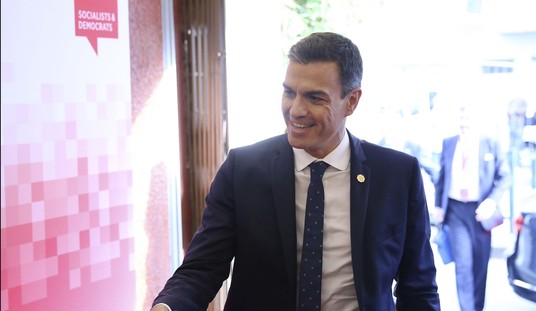The nomination of Gen. John Kelly (USMC-Ret) for Secretary of Homeland Security has caused elite members of the DC and New York media to harrumph their way through deeply concerned opinion pieces about the disturbing influence of the military in President-elect Donald Trump’s nascent administration.
The Washington Post’s headline screamed:
Trump hires a third general, raising concerns about heavy military influence
And the serious tone of the concerns intoned by WaPo implied an unprecedented new normal under the dangerous president-elect:
Trump’s choice of Kelly — and his continued deliberations about tapping as many as two more military figures for other posts — has intensified worries among some members of Congress and national security experts that the new administration’s policies may be shaped disproportionately by military commanders.
“I’m concerned,” said Sen. Chris Murphy (D-Conn.), a member of the Foreign Relations Committee. “Each of these individuals may have great merit in their own right, but what we’ve learned over the past 15 years is that when we view problems in the world through a military lens, we make big mistakes.”
Despite making regular remarks on the campaign trail disparaging the nation’s generals, Trump has long shown an affinity for them. In shaping his administration, Trump has prioritized what one adviser described as “can-do, no-bull types,” which the president-elect sees as a deliberate contrast from the personnel choices President Obama has made.
Sounds like a major new development that Murphy, his colleagues and his WaPo cheerleaders have never confronted before, right?
Well, Eddie Scarry at the Washington Examiner points out an inconvenient truth for everyone wringing their hands over the “undue influence” of three generals in the proposed Trump Administration:
Obama’s initial team included, as pointed out by the Washington Examiner’s Jamie McIntyre on Wednesday: retired Marine Gen. Jim Jones as national security adviser; retired Army Gen. Eric Shinseki as veterans affairs secretary; and retired Navy Adm. Dennis Blair as director of national intelligence.
The jobs they filled were indeed different than the ones Trump’s generals will fill. Much of the controversy over Trump’s selections comes from nominating a retired general, only three years out of uniform, to be defense secretary, which is not the same as a retired general running the VA. Yet others focus squarely on the number of retired officers tapped so far, and the possibility that Trump will choose more.
Perhaps this is why Democrat Tulsi Gabbard, a veteran who serves now in the House for the state of Hawaii, told CNN’s Jake Tapper that she found the criticism over generals in the new cabinet “pretty offensive” Thursday night:
Rep. Tulsi Gabbard: As a veteran, concerns about generals serving in Trump’s administration are “pretty offensive” https://t.co/cXP5J1g7aY
— CNN Politics (@CNNPolitics) December 8, 2016
“I don’t share [critics’] concerns. In fact, as a veteran … I find it pretty offensive for people to outright discriminate against veterans. Here you have generals who have literally spent their whole lives serving our country, putting service before self, putting their lives on the line to defend democracy. And yet people are criticizing them and discriminating against them saying just because you served as a general previously you are disqualified from serving in a high position of leadership in our government”
Since this debate is happening over the Christmas holiday season, at least we’re able to answer the eternal (or at least since 1944) question that Bing Crosby first raised:









Join the conversation as a VIP Member